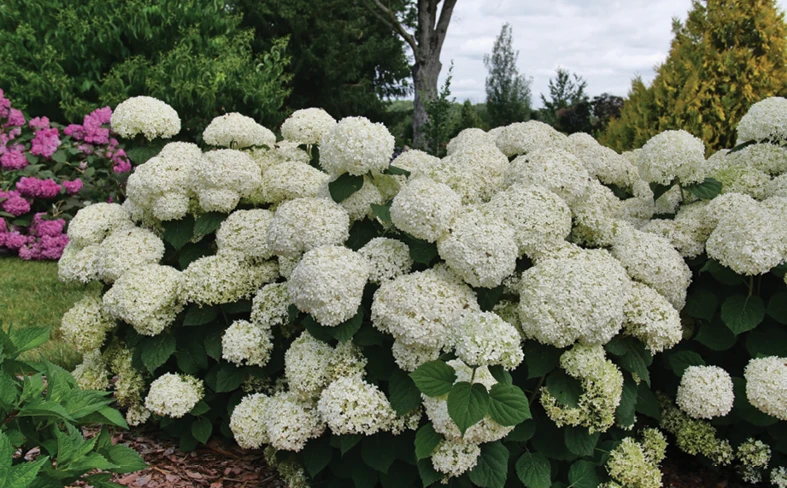|
Roses hold a historically special place at the Missouri Botanical Garden in Saint Louis. Founder Henry Shaw wrote a small book on the emblem of his native England, entitled “The Rose.” “Human art can neither colour nor describe so fair a flower,” he wrote in 1882. Today, visitors to the Missouri Botanical Garden’s Gladney and Lehmann Rose Gardens enjoy more than 2,700 individual plants encompassing 262 varieties. The Garden is one of more than 130 All-America Rose Selections (AARS) accredited public rose gardens. AARS winners may be seen in these two gardens one year before they are offered to the public. The Garden updates displays every year with roses that are highly disease resistant and show high vigor while also being hardy in St. Louis, as well as new and unusual varieties. Gladney Rose Garden The Frank Y. and Katherine Graves Gladney Rose Garden has been in existence since 1917, when it housed many old garden roses. It has evolved over the years to its present giant wagon-wheel shape. About 1,315 roses representing 110 varieties of mainly hybrid tea, shrub and floribunda roses are displayed. Many varieties of climbing roses are featured on the formal fence enclosing the Gladney Rose Garden. Successful growing climbers include ‘Rosanna,’ ‘New Dawn,’ ‘Crimson Sky’ and Mademoiselle Alfred Carriere. During the past five years, several remarkable varieties have become the favorites of Garden horticulture staff and visitors alike. Buck roses consistently perform well — they are winter hardy, disease resistant and retain the classic look of a rose. Easy Elegance is also a highly disease resistant collection — floriferous and a few varieties tout an amazing fragrance. Knock Out varieties are tough, hardy and extremely vigorous. The single flower specimens are quite popular though there is no fragrance. Kordes roses are evaluated as highly disease resistant, winter hardy, fragrant and include shrubs and floribundas. These roses of significant achievement include Eliza, Purple Rain, ‘Summer Sun,’ Roxy, Cream Veranda, La Perla, Lion’s-Rose, Planten un Blomen, Jasmina, Blush Flower Circus and Kordes Moonlight. Lehmann Rose Garden In the Lehmann Rose Garden, which was established in 1974, a more romantic design of the two gardens is featured, with a bushy mix of floribundas, shrub roses and other classifications. It is less formal than the Gladney Rose Garden, and contains about 1,400 roses representing 152 different varieties. The AARS winner for 2010, Easy Does It, and the two winners for 2011, Dick Clark and Walking on Sunshine, can all be seen in the Lehmann Rose Garden. The middle tier contains a sustainable rose trial garden where no chemicals are sprayed. This trial area includes one bed of the Earth-Kind roses and two beds of Kordes roses. The Earth-Kind trial requires no chemical application of any kind, no deadheading, no fertilizing, minimal watering requirements and no winter protection; the only pruning to be done is any winter injury. The goal of this trial is to see what roses currently available in commerce can be grown with minimal care and still be beautiful. The Kordes trial focuses on winter hardiness, disease resistance without the use of chemicals and all the flowering characteristics one would expect from a rose. The trial requirements are not as rigid as the Earth-Kind trial, but the bed is also not sprayed with any kind of chemical. A mix of very fragrant old garden roses, species roses, a few modern roses and perennials grow on the lower terrace. This area not only showcases the history of roses but also demonstrates how roses can be featured among other plants. “It is exciting to be a part of pioneering these efforts to trial varieties that excel in our garden and ultimately for home gardeners. That’s what our mission is about; discovering and sharing plant knowledge and best practices” Laufersweiler said. For more: Missouri Botanical Garden, www.mobot.org. Holly Berthold is the public information officer for the Missouri Botanical Garden and Sarah Laufersweiler is rosarian for the Garden. |
Get curated news on YOUR industry.
Enter your email to receive our newsletters.
Explore the May 2011 Issue
Check out more from this issue and find your next story to read.








